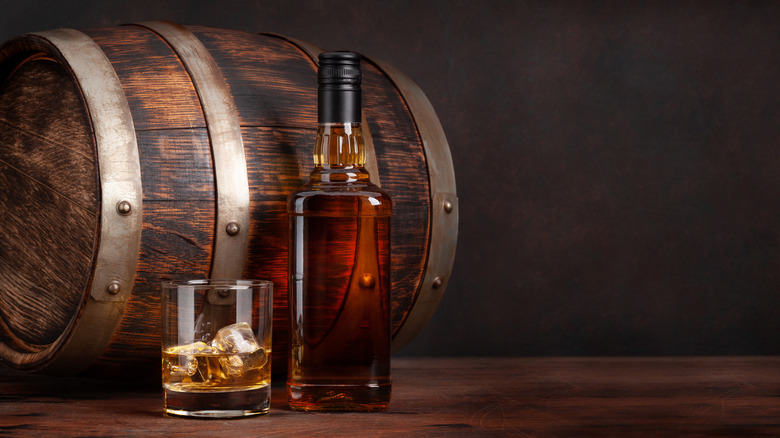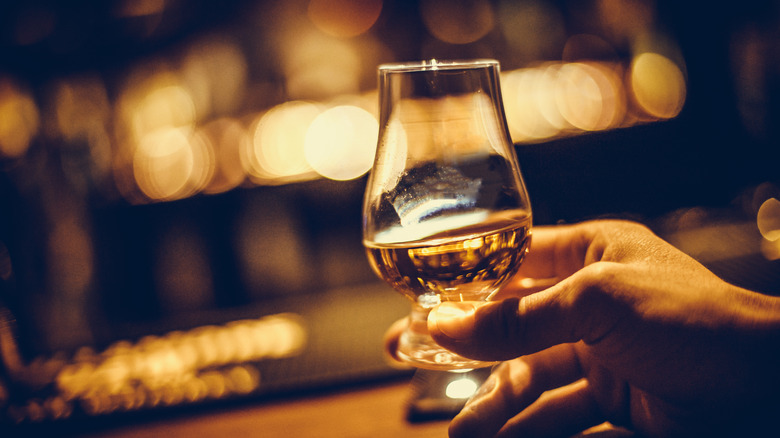How To Tell If Bourbon Has Gone Bad
Bourbon is an excellent staple to keep on hand around your kitchen. Its sweet, smooth flavor makes it not only super approachable, but also extremely versatile. You make some great drinks with it, like the classic old fashioned, and can also cook and bake with it to great success — just try our recipe for bourbon pecan pie bars. If you are as big of a bourbon fan as we are, you may have more than one open bottle in your collection, or may even be saving a special bottle for a celebratory occasion, leading you to wonder — does bourbon go bad? The answer is yes, especially under certain circumstances.
Are you nervous that the bourbon in your liquor collection has gone bad? We have some tips and tricks for how to tell if that's the case. First, check the color. If the color has faded significantly, this is a sign that your bourbon is no longer at its peak, usually due to light exposure. Second, check the smell. Bourbon that has spoiled might smell moldy or sour. Finally, evaluate the taste. If the flavor is weak or unpleasant in a way you don't expect, your bourbon is past its prime — owing to its likely exposure to oxygen or heat.
How long does bourbon last once opened?
A sealed bottle of bourbon is unlikely to spoil and can go for years or even decades without a detectable change in quality. Once opened, however, it becomes exposed to air and begins to oxidize. This chemical reaction slowly but surely changes the whiskey by agitating the internal chemicals — ultimately altering its taste, smell, and appearance. Additionally, since alcohol evaporates faster than water, an open bottle will steadily become watered down. Unfortunately for those savoring their favorite bottles, this means you have only eight months or fewer to enjoy an open bottle of bourbon before it begins to noticeably turn.
Of course, the best way to keep yourself from worrying about open bourbon spoiling is to store it properly. Put yourself at an advantage by keeping the spirit sealed tightly to prevent additional oxygen from entering the bottle and by storing it away from excessive heat and light. Dramatic changes in temperature, along with exposure to large amounts of ultraviolet light, can change the chemical makeup of bourbon in undesirable ways. Additionally, it is best to store bottles upright to prevent cork decay and reduce the amount of liquid coming in contact with oxygen. This will slow the oxidation process, thereby stretching the time for which your bourbon is at its best.

